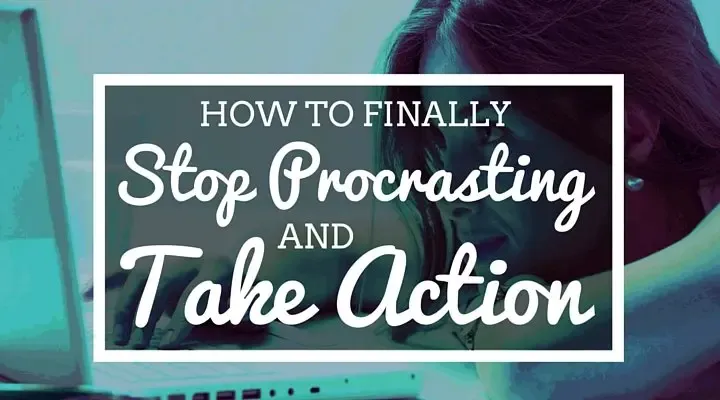

In today’s fast-paced world, the struggle with procrastination is all too real for many of us. Whether you’re a student facing looming deadlines, a professional juggling multiple projects, or simply someone trying to achieve personal goals, the tendency to put things off can be a major obstacle to success and personal growth. Let’s explore this topic in more detail with Tic Tac Toe below as we delve into effective strategies to overcome procrastination and become a motivated action taker.
Procrastination is a common challenge that affects people of all ages and backgrounds. It can lead to increased stress, decreased productivity, and a sense of unfulfillment. However, with the right mindset and tools, it’s possible to transform from a chronic procrastinator into a proactive and motivated individual. This article will explore various motivation hacks and techniques to help you overcome procrastination and become an action taker, ultimately leading to improved personal growth and a more balanced lifestyle.
Before we can effectively tackle procrastination, it’s essential to understand its underlying causes. Procrastination is not simply a matter of laziness or poor time management; it often stems from deeper psychological and emotional factors. By identifying these root causes, we can develop more targeted strategies to overcome them.
Fear of failure is one of the most common reasons people procrastinate. The fear of not meeting expectations or making mistakes can be paralyzing, causing individuals to delay or avoid tasks altogether. This fear is often rooted in perfectionism, where the desire to produce flawless work becomes a barrier to starting or completing tasks.
Another significant factor contributing to procrastination is a lack of motivation or interest in the task at hand. When we don’t see the immediate value or relevance of a task, it becomes easier to put it off in favor of more enjoyable activities. This can be particularly challenging for students or professionals working on assignments or projects that don’t align with their personal interests or long-term goals.
Feeling overwhelmed by the size or complexity of a task can also lead to procrastination. When faced with a large project or multiple deadlines, it’s easy to become intimidated and unsure of where to start. This feeling of being overwhelmed can result in a state of paralysis, where taking any action seems impossible.
Additionally, poor time management skills and a lack of structure can contribute to procrastination. Without clear priorities and a solid plan of action, it’s easy to fall into the trap of focusing on less important tasks or getting distracted by other activities.
Lastly, some individuals may procrastinate as a form of self-sabotage or due to underlying mental health issues such as anxiety or depression. In these cases, procrastination can be a coping mechanism or a symptom of deeper emotional challenges that may require professional support to address.
Read more: Why Emotional Intelligence Matters More Than IQ
One of the most powerful tools in overcoming procrastination is cultivating a growth mindset. This concept, popularized by psychologist Carol Dweck, emphasizes the belief that our abilities and intelligence can be developed through effort, learning, and persistence. By adopting a growth mindset, we can reframe challenges as opportunities for growth rather than insurmountable obstacles.
To develop a growth mindset, start by becoming aware of your self-talk and inner dialogue. When faced with a challenging task, pay attention to the thoughts that arise. Are you telling yourself that you’re not capable or that the task is too difficult? Challenge these negative thoughts by reframing them in a more positive and growth-oriented way. For example, instead of thinking, “I’m not good at this,” try “This is an opportunity to improve my skills.”
Embrace the power of “yet” in your language and thought processes. When you encounter a task or skill that you haven’t mastered, add “yet” to the end of your statement. For instance, “I’m not good at public speaking yet” or “I haven’t figured out how to manage my time effectively yet.” This simple addition acknowledges that improvement is possible and that your current abilities are not fixed.
Set learning goals instead of performance goals. Rather than focusing solely on the outcome, shift your attention to the process of learning and improving. This approach can help reduce the fear of failure and increase motivation. For example, instead of aiming to get a perfect score on a test, set a goal to understand the material thoroughly and improve your study techniques.
Celebrate effort and progress, not just results. Recognize that the journey of improvement is just as important as the final outcome. Take time to acknowledge the steps you’ve taken, the challenges you’ve overcome, and the growth you’ve experienced along the way. This practice can help build resilience and maintain motivation in the face of setbacks.
Seek out challenges and view them as opportunities for growth. Instead of avoiding difficult tasks, actively look for ways to push yourself out of your comfort zone. This mindset shift can help you approach procrastination-inducing tasks with curiosity and enthusiasm rather than dread.
Surround yourself with growth-minded individuals who inspire and support your development. Engage in conversations about personal growth, share your goals and challenges, and learn from others who have overcome similar obstacles. This supportive environment can reinforce your own growth mindset and provide valuable insights and motivation.
Now that we’ve explored the root causes of procrastination and the importance of a growth mindset, let’s dive into practical strategies you can implement to become an action taker. These techniques are designed to help you break through mental barriers, increase motivation, and develop productive habits.
The Pomodoro Technique is a time management method that can be particularly effective for overcoming procrastination. It involves breaking your work into focused 25-minute intervals, called “Pomodoros,” followed by short breaks. This approach helps to make large tasks feel more manageable and provides a sense of accomplishment as you complete each interval.
To implement the Pomodoro Technique, follow these steps:
Choose a task you want to work on.
Set a timer for 25 minutes.
Work on the task with full focus until the timer rings.
Take a short 5-minute break.
After completing four Pomodoros, take a longer 15-30 minute break.
This technique can help you build momentum and maintain focus, making it easier to tackle tasks you’ve been putting off.
The Two-Minute Rule, popularized by productivity expert David Allen, states that if a task will take less than two minutes to complete, you should do it immediately. This simple rule can help you overcome the initial resistance to starting tasks and build momentum throughout your day.
By tackling small tasks quickly, you’ll clear your mind of minor obligations and create a sense of progress. This can be particularly helpful when facing larger, more daunting tasks, as it allows you to build confidence and motivation through small wins.
Breaking larger tasks into smaller, more manageable chunks can make them feel less overwhelming and more achievable. Start by identifying the main components of a project or goal, then break each component down into specific, actionable steps.
Once you’ve broken down your tasks, prioritize them based on importance and urgency. Use techniques like the Eisenhower Matrix to categorize tasks into four quadrants: urgent and important, important but not urgent, urgent but not important, and neither urgent nor important. This approach can help you focus on high-impact activities and reduce the tendency to procrastinate on essential tasks.
Read more: How to Set Goals You'll Actually Achieve
Your physical environment can have a significant impact on your motivation and ability to focus. Create a workspace that is conducive to productivity by minimizing distractions and optimizing for comfort and efficiency.
Consider the following tips:
. Declutter your workspace to reduce visual distractions.
. Ensure proper lighting and ergonomics to support long periods of focused work.
. Use noise-canceling headphones or background music to create an ideal auditory environment.
. Keep necessary tools and resources easily accessible to avoid unnecessary interruptions.
. Experiment with different locations to find where you work best, whether it’s a home office, library, or coffee shop.
Sharing your goals and commitments with others can significantly increase your motivation and accountability. Consider finding an accountability partner or joining a mastermind group where you can regularly check in on your progress and receive support and encouragement.
You can also use social media or productivity apps to publicly share your goals and progress. The knowledge that others are aware of your commitments can provide an extra push to follow through and avoid procrastination.
Visualization is a powerful technique used by athletes, entrepreneurs, and high-achievers to improve performance and motivation. By vividly imagining yourself successfully completing a task or achieving a goal, you can increase your confidence and reduce anxiety associated with procrastination.
Take a few minutes each day to visualize yourself working through challenging tasks with ease and focus. Imagine the sense of accomplishment and positive emotions you’ll experience upon completion. This mental rehearsal can help rewire your brain to associate action-taking with positive outcomes, making it easier to overcome procrastination in real-life situations.